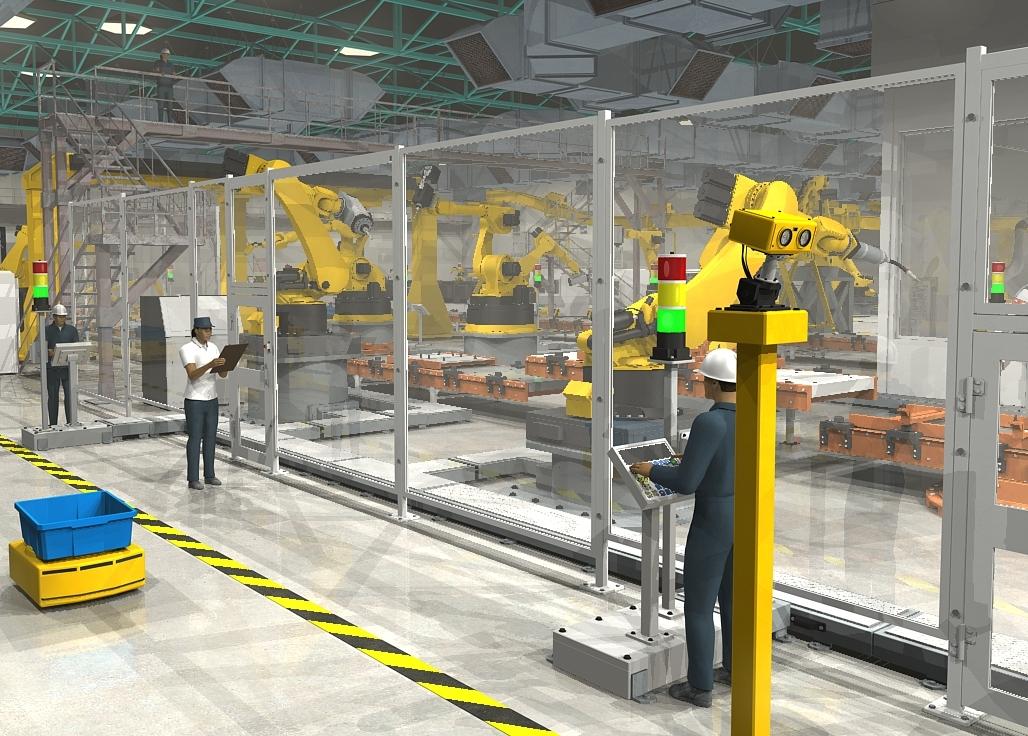Virtual careers precinct sparks student interest

Avatars and gaming will help guide students through education pathways into industry in a new virtual careers precinct. It will encourage students into STEM and help them discover more opportunities as part of the workforce of the future.
The CareerSpark project is a joint initiative between the University of Adelaide, TAFE SA and 3D experience company Lateral Vision. A grant of $497,000 from the National Careers Institute has enabled the project to get off the ground.
“The CareerSpark project will create a web-based, interactive virtual experience that will enable students to see and interact with virtual and actual workers,” says project lead Eric Fusil from the University of Adelaide’s School of Mechanical Engineering.
“CareerSpark will provide not only an information-rich but also an experience-rich careers planning resource.”Eric Fusil
“Students will be able to gather advice and information on how to start their careers in four key industry sectors: aerospace and space, shipbuilding, cyber and big data, and allied industries.
“CareerSpark will open doors to industries and precincts that are usually off-bounds due to their sensitive nature.
“Avatars of real people from our industry partners who have had a career in these industries will show students how their futures could unfold. A virtual engineer might show students how they program a robotic welding arm to cut the sheet metal for the hull of a ship.”
In developing CareerSpark, TAFE SA will contribute information on jobs needing a Certificate I to IV qualification and the University of Adelaide will provide details on careers requiring diplomas through to doctorates. Lateral Vision will build the digital environment.
“TAFE SA is thrilled to be partnering with the University of Adelaide to develop CareerSpark, a virtual resource which will transform the promotion of careers in shipbuilding, space and aerospace, cyber security and allied industries,” says David Coltman, Chief Executive of TAFE SA.
“TAFE SA has undertaken considerable research into the job roles in these industries and the skills that will be needed, and we’ll be contributing this knowledge as well as our expertise in developing virtual reality training resources.
“We welcome the development of CareerSpark as an opportunity to push innovation, virtual learning and careers engagement to new heights and expect it will bring great benefits for school students, jobseekers and the state’s growing industries.”
Two components will be developed in the first phase of the project: a 3D modelled virtual precinct, containing the four industry sectors, and a web-application that will use a content management system to create and manage the experience as well as allowing future updates.
“CareerSpark’s target audience are more familiar and comfortable with virtual technologies and ‘gamified’ experiences and have the most to gain from active career planning,” says Mr Fusil.
“Very few existing careers advice platforms similar to the one we will be building employ gamification techniques to more actively engage users. Those that use 3D or virtual environments do not fully exploit the potential of the technology to allow users to be better informed about job roles.”
CareerSpark, which will be available for students by the end of 2021, will remain accessible 24/7 in a time when physically exploring new environments is complicated.
“Australia is embarking on a future built upon innovation and knowledge-intensive industries. This will require highly-skilled citizens, particularly in the fields of science, technology, engineering and mathematics (STEM),” says Mr Fusil.
“Growing this talent pool will require action across many sectors including schools, vocational and tertiary education institutions, government, industry and the community, all working towards a common goal.
“CareerSpark will provide not only an information-rich but also an experience-rich careers planning resource.”
Media contacts:
Eric Fusil, School of Mechanical Engineering, University of Adelaide. Mobile: +61 (0)402 650 946, Email: eric.fusil@adelaide.edu.au
Crispin Savage, Senior Communications and Media Officer, University of Adelaide. Mobile: +61 (0)481 912 465, Email: crispin.savage@adelaide.edu.au
Catherine Clifton, Senior Media and PR Consultant, TAFE SA. Mobile +61(0)417 837 694, Email: Catherine.clifton@tafesa.edu.au
